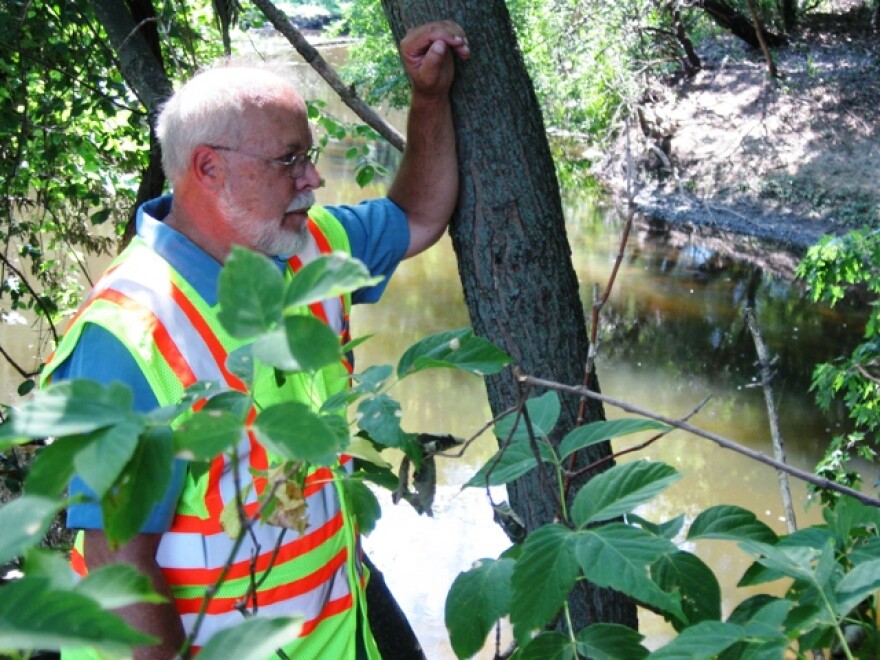In 2007, the city of Lansing closed the Red Cedar Golf Course near the Frandor shopping center for budgetary reasons. Now, an economic development team is studying five proposals to revitalize a portion of the 61-acre tract. Regardless of which plan is selected, the land will undergo a major engineering project to keep pollutants from storm water runoff from spilling into the Red Cedar River.
Fourteen months ago, civic leaders gathered at the Red Cedar Golf Course to announce a plan to bring new life to the vacant parcel. Calling it the “Red Cedar Renaissance,” Lansing mayor Virg Bernero noted the potential for a mixed-use development at the nexus of the cities of Lansing, East Lansing and Michigan State University.
“The strategic location of this property presents a rare opportunity to spark new economic growth, create new jobs, protect our precious water resources and enhance opportunities for outdoor recreation,” Bernero said.
Now, a team led by the Lansing Economic Area Partnership, or LEAP, is reviewing proposals from five developers. Most of the plans include a blend of retail and residential space; one even calls for an aquarium. The team wants to see a project that blends recreation, retail and residential uses in a way that binds city and campus.
But before any construction begins on the frontage along Michigan Avenue, civic planners must first deal with some environmental challenges. The site sits adjacent to the Frandor shopping center, one of the region’s busiest commercial zones. There’s a lot of asphalt there, but little natural vegetation.
Ingham County Drain Commissioner Pat Lindemann says 75 percent of the watershed here is non-porous...so when it rains, everything from oil slicks to metal brake pad shavings to French fries washes into the Red Cedar.
“Whatever pollution sits on the parking lots or the roofs, within minutes of any storm event would be in the river,” Lindemann says. “We’re going to retrofit this watershed, taking out between 85 and 100 percent of the pollution.”
Lindemann strides through waves of crisp, dry grass to the middle of the property. Concealed by trees, a doe watches us curiously as we stand near a thick grove of thistles in a low spot in the field…a little valley Lindemann plans to use as a natural storm water basin.
“Right about in here or so would be one of the big ponds that we plan on building,” he says. “The depression already exists so we’re going to take advantage of that topography. (We’re going to) take the soil out of here probably two to three or four feet deep in some of these areas and 10 to 12 feet deep in others.”
Lindemann envisions a system of ponds and tributaries near the river to store and clean excess water from rainstorms. He describes the project as a storm water treatment facility that mimics a park. Many design elements, like the input of dissolved oxygen, will be subtle. Others, like waterfalls, will be functional and aesthetic.
Lindemann has overseen similar projects before; most notably, the Tollgate drain in Lansing’s Groesbeck neighborhood. Back then, Jennie Grau was the executive director of the Lansing Neighborhood Council. It was her say so that allowed Lindemann to recruit residents to canvass the streets to drum up support.
At first, Grau was skeptical of a water treatment plant in the middle of a neighborhood.
“When Pat first proposed the project, I thought he was nuts,” Grau recalls. “And it was several lengthy conversations and explanations about how this could be done, why it should be done, how it would enhance the community, how it would maintain the water. And I have to tell you – I am really glad to have been wrong.”
Today, Grau lives near the Red Cedar property in Lansing’s Place neighborhood. She says regardless of whichever commercial development plan is finally selected, her main concern is clean water draining into the river.
The five development proposals are now in the hands of an eight-member review team. They’ll take about two weeks to study each design. They’ll score them based in part on how well each blends into the existing infrastructure as well as their potential for economic vitality.
“What we’re really looking for is a developer who has a good vision and is willing to work with us and all the other various interested parties, and has the financial wherewithal to be able to do something like this,” says LEAP’s Karl Dorshimer.
The review team will meet again during the first week of August. It’s not yet clear when the city will ultimately choose its developer. Planning and designing the storm water management aspect of the project will likely take about 18 months.
ReWorking Michigan examines our evolving economy, as the people of the Great Lake State explore new ways to make a living a build a future. A project of WKAR NewsRoom, WKAR-TV and WKAR Online.


